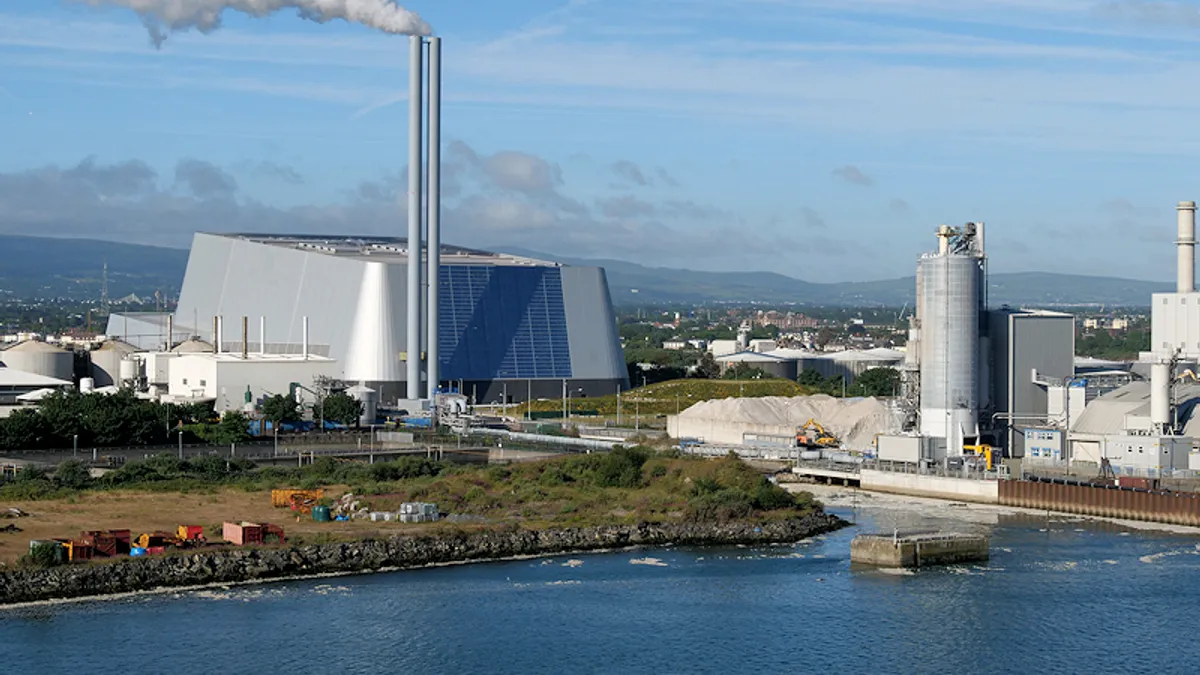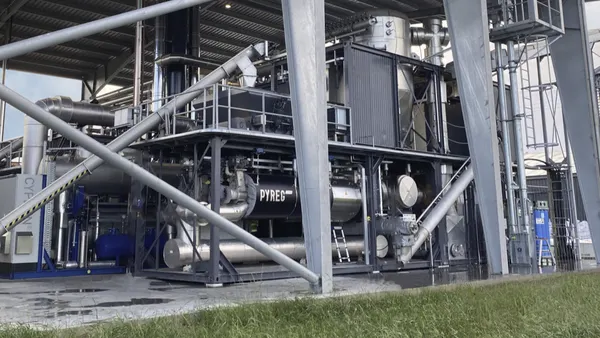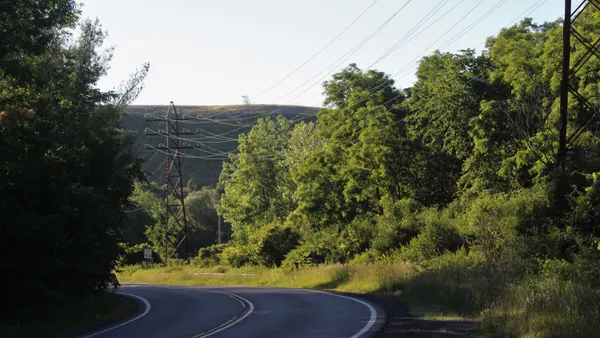Q3 Earnings
| Revenue | $465M |
| YoY Change | 1.97%▲ |
| Net Income | $14M |
Despite an enduring soft environment for commodities, Covanta remained profitable in Q3 due to its core solid waste business.
CEO Steve Jones pointed out that the quarter's adjusted EBITDA of $125 million was still up 2% YoY, despite a 20% decline in many commodity prices, as a sign of Covanta's stability. The company also reported a 4% increase in tip fees for Q3.
"As I like to say, it’s a good time to be a waste company, especially with our assets in the Northeast," said Jones.
Commodities continue to pose a problem
- Both ferrous and non-ferrous prices have weakened over the past several months, as fallout continues from China's decision to reduce its intake, but steel prices may finally be stabilizing. Covanta lowered its metals revenue guidance by an additional $10-20 million as a result.
- Power prices, meanwhile, appear to have stabilized at "historically low levels." Pressure from both energy pricing and metals led to a $13 million decline in revenue for Q3. Seeking to offset this trend, Covanta is investing in technology to improve separation of more valuable nonferrous metals from aluminum.
- The company's first Total Ash Processing System (TAPS), now under construction in Pennsylvania, is also expected to improve metals recovery efforts. Following some delays, the project is expected to be running next year. Pending results, Jones anticipates building more TAPS locations to service the company's full U.S. network within two to three years.
Like its peers in the waste and recycling industry, Covanta is continuing to feel the effects of a rocky global trade market – albeit for different commodities. Another suspension of the U.S. Mint's mutilated coin redemption program has also been a factor. While those problems lie outside of the company's control, executives noted the TAPS project could help change that and Covanta remains committed to metals recovery because it reduces ash disposal costs.
Macquarie analyst Angie Storozynski also probed how declining power prices in the Northeast could continue to affect Covanta, particularly with the expansion of offshore wind power and the looming potential for New York to pass a carbon tax.
"[W]hat drives our business is the waste side of the business and then the power is in some respects a byproduct," Jones said, while explaining that Covanta is looking to sell more steam directly to customers and other large electricity users.
In response to another analyst question, Jones also addressed the struggles that have hit competitor Wheelabrator lately with both landfill expansion and air permitting. Covanta is looking to install baghouse filters on the only two U.S. plants that don't have them to control emissions. Jones also pointed to having "multiple options" for ash disposal, as well as the TAPS system, to address potential landfill capacity concerns.
WTE remains consistent source of growth
- Despite narratives of decline from opponents, Covanta's results showed the company's facilities continue to be a popular destination. Covanta processed 5.5 million tons of waste in Q3, an 8% increase YoY, and said many of its largest plants are running "at or near record levels."
- Dwindling disposal options in the Northeast and other regions led to a same-store tip fee volume growth of 2.5%. Executives said improvements in both operations and supply chain management have allowed for better processes and lower costs. Jones said Covanta now expects a tip fee price growth of over 4% for 2019.
- Meanwhile, revenue from profile waste rose 10% (excluding divestitures) in an ongoing effort to prioritize higher-value material. Regulated medical waste revenue grew by over 40% this quarter and Jones called it a "key area of opportunity." Covanta is ramping up volumes at its three plants permitted to take medical waste.
A look ahead
- Executives admitted it will likely take longer than five years to reach their $250 million free cash flow target, thanks in no small part to ongoing commodities uncertainty. Jones emphasized, however, that Covanta still expects to reach that number and executives feel the company is "in a pretty good place."
- The company's four U.K. projects are moving forward, with both Rookery and Earls Gate "well into construction" and Protos and Newhurst progressing as well. Protos is likely to reach financial close in 2019, while Newhurst is set for early 2020.
- In addition to the U.K., executives see further opportunity for new plants both internationally and domestically. "I would have told you in the beginning of my tenure there wasn’t going to be a lot of new energy-from-waste in the U.S.," said Jones. "I think now I’m changing my view a little bit. I think there’s going to be opportunities for us here in the U.S."









